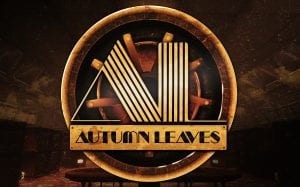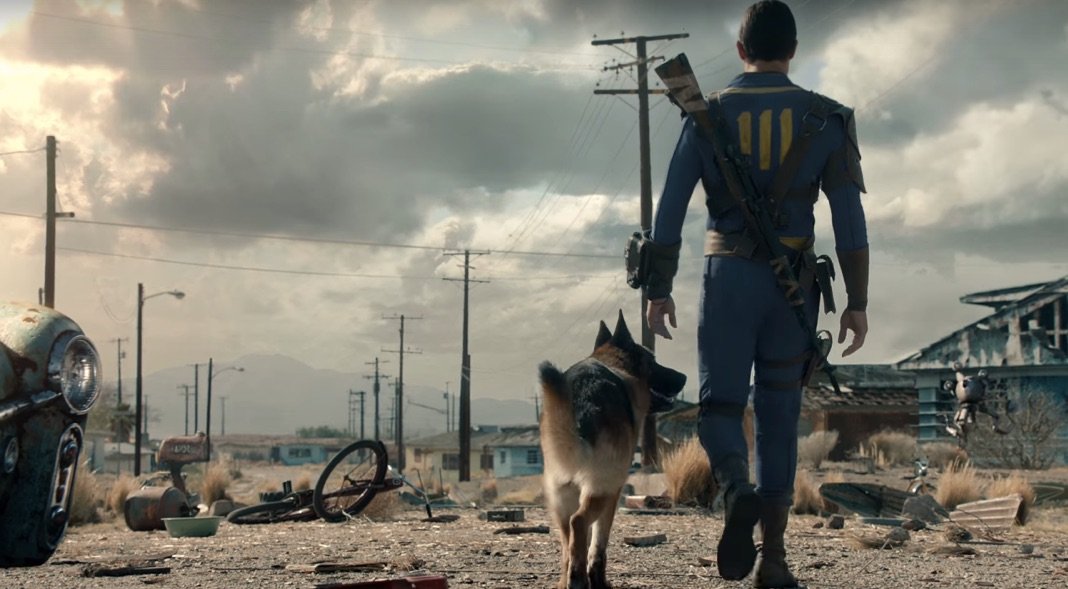When Fallout 4, Modding and Plagiarism Collide
Allegations of plagiarism hit the wasteland...
 Bethesda, the company behind (most of) the popular Fallout series found itself in a plagiarism controversy this month.
Bethesda, the company behind (most of) the popular Fallout series found itself in a plagiarism controversy this month.
As part of its Far Harbor DLC for Fallout 4, Bethesda introduced the quest Brain Dead. In the quest, the player visits a vault (vaults in Fallout lore are underground bunkers used to survive the nuclear apocalypse that took place 200 years prior to the game) populated by wealthy aristocrats who transplanted their brains into robots so they could live forever. However, recently the vault was struck by a murder most foul that the player is tasked with solving.
While the quest seems to be a popular one, modder Guillaume Veer, better known as BaronVonChateau, raised questions as to whether the mission was based on his mod for Fallout: New Vegas entitled Autumn Leaves.
Some of the similarities are very striking. Both involve murder mysteries in vaults populated by robots, both have plot points involving voice modulation and there are similar scenes between. Those include a robot obsessed with paintings, a robot that the player can enter into a romantic relationship with and some of the imagery.
Still, most who have looked at both have found that there are also broad differences including many unique characters to both and largely different story arcs. But that hasn’t stopped many from wondering if Bethesda pulled inspiration from Autumn Leaves and that includes Veer himself who wrote:
“I honestly thought Bethesda’s staff played Autumn Leaves, had a blast with it (I hope), [and] took some things out of it and made their own thing for Far Harbor,”
“Of course, it raises some questions : should modders get some recognition from the industry, compensation? How could those two dynamics—paid content and free creation—should be managed? What kind of acknowledgement should a big publisher give to small creators? What is the kind of acknowledgement they can afford?”
Bethesda, for it’s part, claims that the similarities “are a complete coincidence” and, to be honest, they may well be. There’s no easy way to tell when the overlap is this abstract.
But Veer’s questions linger. Even if it isn’t the case this time, what should happen when publishers take ideas and elements from modders? With the modding community growing in importance and size, this is becoming an increasingly important question and one that needs an answer sooner rather than later.
Changes in the Modding Community
 Back in April 2015 Valve, the makers of the Steam game distribution platform, teamed up with Bethesda to allow modders to distribute paid mods.
Back in April 2015 Valve, the makers of the Steam game distribution platform, teamed up with Bethesda to allow modders to distribute paid mods.
The move was almost immediately decried by the modding community.
While the reasons modders were upset were many, one of the bigger problems was copyright issues. Not only do modders routinely build upon the work of their colleagues, but many of the first paid mods offered turned out to be infringing upon free ones.
The companies quickly backtracked on the project, but the effect it had on the modding community lasted much longer than the failed effort.
The incident brought the modding community, which was born more out of love for the game and the community than anything else, face to face with the harsh realities of copyright and misuse of their work. That’s a lesson that wasn’t forgotten.
When Bethesda announced that it would open up the door to modding on consoles for Fallout 4, one of the first challenges it faced was copyright as much of the content initially submitted was just repackaged PC mods. Bethesda and its parent company, ZeniMax Media, responded by providing a DMCA process for such mods, but that failed to appease many.
That policy has prompted at least one prominent modder to refuse to port his mods over to consoles until more is done to protect mod authors.
But this rift is just another example of the tension between modders and developers (in particular Bethesda), an ongoing tension that puts the recent allegations of plagiarism in a different light.
Turning a New Page
 Legally speaking, Bethesda is undoubtedly safe. Not only are the overlaps between the two, almost certainly, not copyrightable, but the Bethesda end user license agreement makes it pretty clear that any mods are free for them to to use without royalty or credit.
Legally speaking, Bethesda is undoubtedly safe. Not only are the overlaps between the two, almost certainly, not copyrightable, but the Bethesda end user license agreement makes it pretty clear that any mods are free for them to to use without royalty or credit.
But legality isn’t the problem Bethesda has. The issue is that it gets a great deal of benefit from the modding community. The community creates countless hours of new content, extends the life of old games through graphic upgrades and even helps to fix bugs. All of this helps Bethesda sell more games at almost no cost to them.
The actions of Bethesda over the past year and a half have shown that they are increasingly distancing themselves from the modding community.
To be clear, I don’t think any of this is Bethesda trying to be evil. Paid mods seemed like a great way to encourage modding and reward those who do great work and expanding modding to consoles seems like a great way to let modders reach a previously-untapped audience.
However, the approach they’ve done with both has been tone deaf and have done more to alienate the community than to support it. It’s clear that, as much as Bethesda wishes to encourage and grow the community, they don’t understand what that community wants.
Instead of looking at the existing community and trying to emulate/nurture it, they are trying to push it into directions that it doesn’t want to go.
That, in turn, brings us back to the Autumn Leaves question. If Bethesda did use ideas or elements from the mod, attribution makes sense, even if they aren’t legally required to.
The reasons for this are many but the key ones include:
- It shows support and respect for the mod community as a whole.
- It encourages high-quality modders to continue to work and putting out great ideas in hopes of getting their own credit.
- It draws attention to the work of great modders, giving players an even better experience.
As for how to attribute them, this is largely uncharted territory. However, it seems natural that Bethesda should ask the modders how they want to be attributed. Communicating with the mod community and listening to their wishes seems like the natural thing to do.
While this seems straightforward, this is something Bethesda has repeatedly failed to do, making this an excellent opportunity to start mending bridges.
After all, even if this case doesn’t represent borrowing from mods, it’s inevitable that developers will wind up drawing inspiration at some point (as they’ve almost certainly been in the past). It’s a problem best considered before there’s an issue rather than after.
Bottom Line
In their response to the Autumn Leaves story, Bethesda said something I found very interesting: “We love our mod community and would never disrespect them.”
While I believe they never would intentionally disrespect their mod community, their handling of paid mods and the launch of console mods has shown that they can do so inadvertently.
Even if this most recent case isn’t a story of mod-drawn inspiration, the Autumn Leaves controversy is a warning and a chance to prepare for the inevitable. If it hasn’t happened already, eventually something from a mod will be applied to a published game and the mod community will be looking for some degree of attribution.
Thinking now about when and how to give that attribution can head off future problems and gives you the time you need to get real input from the community.
That can be a great asset not just in avoiding making tensions worse, but in strengthening the bond between developer and mod community once and for all.
Want to Reuse or Republish this Content?
If you want to feature this article in your site, classroom or elsewhere, just let us know! We usually grant permission within 24 hours.
